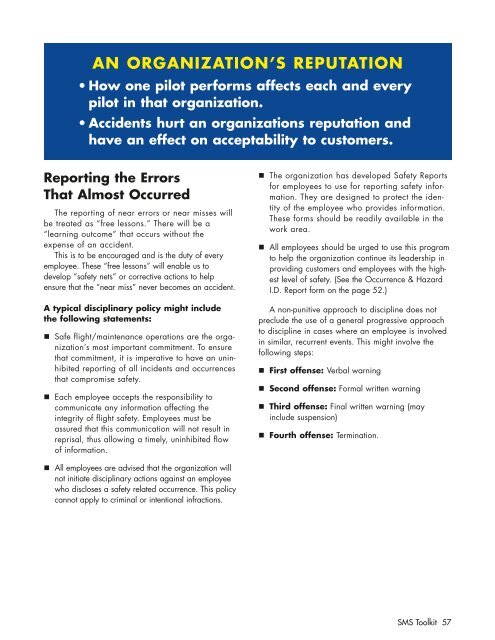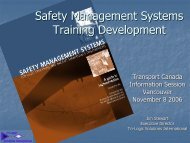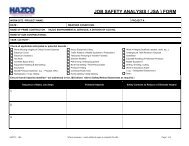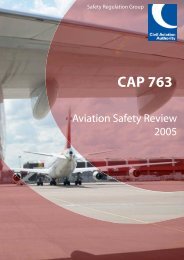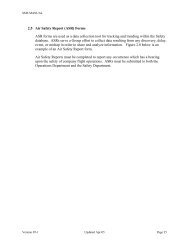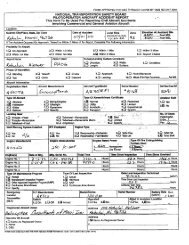International Helicopter Safety Team Safety Management System Toolkit
IHST - Safety Management Toolkit - Skybrary
IHST - Safety Management Toolkit - Skybrary
- No tags were found...
Create successful ePaper yourself
Turn your PDF publications into a flip-book with our unique Google optimized e-Paper software.
AN ORGANIZATION’S REPUTATION<br />
• How one pilot performs affects each and every<br />
pilot in that organization.<br />
• Accidents hurt an organizations reputation and<br />
have an effect on acceptability to customers.<br />
Reporting the Errors<br />
That Almost Occurred<br />
The reporting of near errors or near misses will<br />
be treated as “free lessons.” There will be a<br />
“learning outcome” that occurs without the<br />
expense of an accident.<br />
This is to be encouraged and is the duty of every<br />
employee. These “free lessons” will enable us to<br />
develop “safety nets” or corrective actions to help<br />
ensure that the “near miss” never becomes an accident.<br />
A typical disciplinary policy might include<br />
the following statements:<br />
Safe flight/maintenance operations are the organization’s<br />
most important commitment. To ensure<br />
that commitment, it is imperative to have an uninhibited<br />
reporting of all incidents and occurrences<br />
that compromise safety.<br />
Each employee accepts the responsibility to<br />
communicate any information affecting the<br />
integrity of flight safety. Employees must be<br />
assured that this communication will not result in<br />
reprisal, thus allowing a timely, uninhibited flow<br />
of information.<br />
The organization has developed <strong>Safety</strong> Reports<br />
for employees to use for reporting safety information.<br />
They are designed to protect the identity<br />
of the employee who provides information.<br />
These forms should be readily available in the<br />
work area.<br />
All employees should be urged to use this program<br />
to help the organization continue its leadership in<br />
providing customers and employees with the highest<br />
level of safety. (See the Occurrence & Hazard<br />
I.D. Report form on the page 52.)<br />
A non-punitive approach to discipline does not<br />
preclude the use of a general progressive approach<br />
to discipline in cases where an employee is involved<br />
in similar, recurrent events. This might involve the<br />
following steps:<br />
First offense: Verbal warning<br />
Second offense: Formal written warning<br />
Third offense: Final written warning (may<br />
include suspension)<br />
Fourth offense: Termination.<br />
All employees are advised that the organization will<br />
not initiate disciplinary actions against an employee<br />
who discloses a safety related occurrence. This policy<br />
cannot apply to criminal or intentional infractions.<br />
SMS <strong>Toolkit</strong> 57


